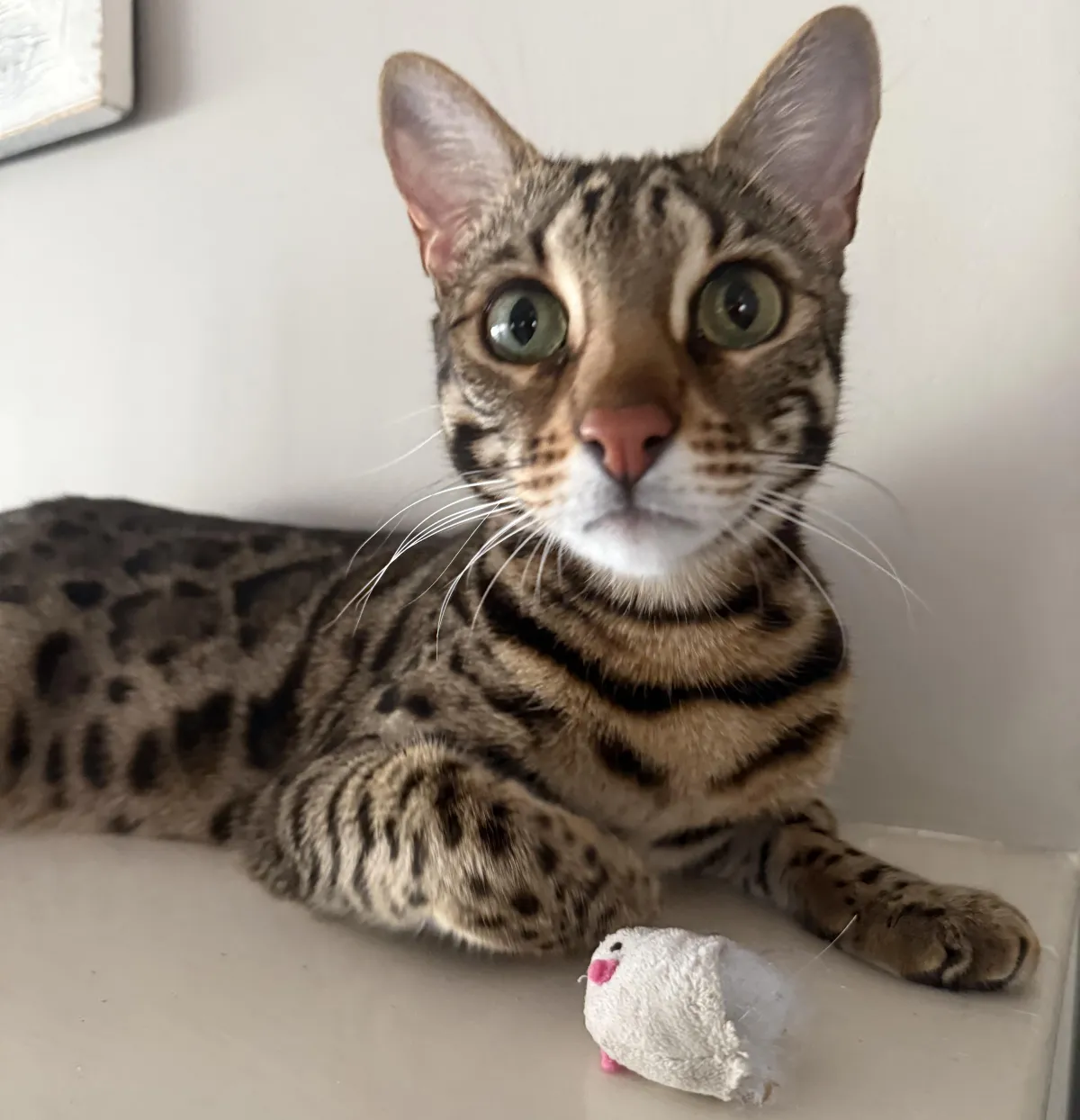
How Much Does Breed Matter? Essential Tips for Pet Lovers
I get asked one question more than almost anything else:
“What kind of cat is Flounder?”
My short answer?
“It doesn’t matter.”
I know—that sounds blunt, maybe even a little rude. And because I don’t always have time to type out my actual full answer, I usually just smile, skip over it, and move on. But here’s the truth, in detail, so I can finally explain why I feel so strongly about this.

There’s Not a Name for What Flounder Is
Flounder is a rescue, but she’s… well, let’s just say she’s unique. This is why I call her a purrmaid. I don’t care to DNA test her—because I know what she is, but there just isn't a name for whatever she is.
She’s like Stitch from Lilo & Stitch: an experiment created to destroy things. And she does an excellent job at it.
And I love her exactly the way she is. I wouldn’t change a single thing about her—mischief, quirks, chaos, and all.
I also intentionally avoid labeling her as a “breed” because I don’t want to promote experimental breeding, which is essentially what she is the result of. Breeding animals for novelty or marketability instead of health or welfare can create a lot of suffering, and I don’t want to play a role in making that more appealing to the public.
But Does Breed Matter for Talking Cats, Water-Loving Cats, or Trainable Cats?
Here’s my unpopular opinion based on years of experience:
Not a lot.
While some traits—like intelligence, temperament, or health issues—can be genetic and may show up more often in certain breeds, “breed” is not the end-all, be-all predictor of behavior. It’s not a one-size-fits-all rulebook.
And here’s why I dislike the assumption that breed is everything:
It’s simply not true.
Yes, Siamese cats tend to be vocal—but I’ve met plenty that aren't. And I’ve met random, mixed-breed shelter cats who talk all day and all night long.It leads to “shopping” for traits that aren’t guaranteed.
People sometimes choose a pet purely based on a breed stereotype—then feel disappointed when their pet doesn’t match that standard. That disappointment can sadly lead to neglect, frustration, or even rehoming.
Every pet is an individual, and should be understood and appreciated as such.
I'm not discounting breed altogether. Yes, you have a higher chance of getting specific qualities in specific breeds, but it's never a guarantee and shouldn't be treated as so. This is something that isn't even thought about in humans. I'm a really strong swimmer. No-one has ever asked me about my genetics as it relates to my swimming abilities. They usually ask if I started swimming when I was really young. This is the same way we should be looking at our pets.

Talking Cats: It’s Not About Breed
All cats are capable of learning to use Augmentative Interspecies Communication (AIC) devices—speech buttons—if given the time, patience, and encouragement.
Breed has nothing to do with whether they can learn it. The bigger question is:
Do they want to?
Some cats, like Flounder, have a lot to say. She’ll “talk” every day, sometimes all day. Other cats are content to live silently, saying nothing for days at a time. That’s personality, not pedigree.
Water-Loving Cats
While certain breeds may statistically have more individuals who enjoy water, you’ll find water-loving cats scattered across all breed types. Flounder loves swimming and paddle boarding—not because of her DNA, but because of who she is.
Just as there are Labradors who hate swimming, there are so-called “water cats” who avoid even a raindrop.

Why I Focus on the Individual
When people ask, “What kind of cat is Flounder?” they’re often looking for a recipe. If they can name the “ingredients” (breed), maybe they can “make” another Flounder. But living beings aren’t recipes.
The magic of Flounder isn’t in her breed—it’s in her unique personality, her quirks, her stubbornness, her curiosity, and her connection with me. Those traits aren’t breed-specific; they’re individual-specific.
So, the next time you meet a pet—whether it’s a cat, a dog, or a parrot—try to look past the label. Learn who they are, not what they are. You might be surprised by how much more you see.
